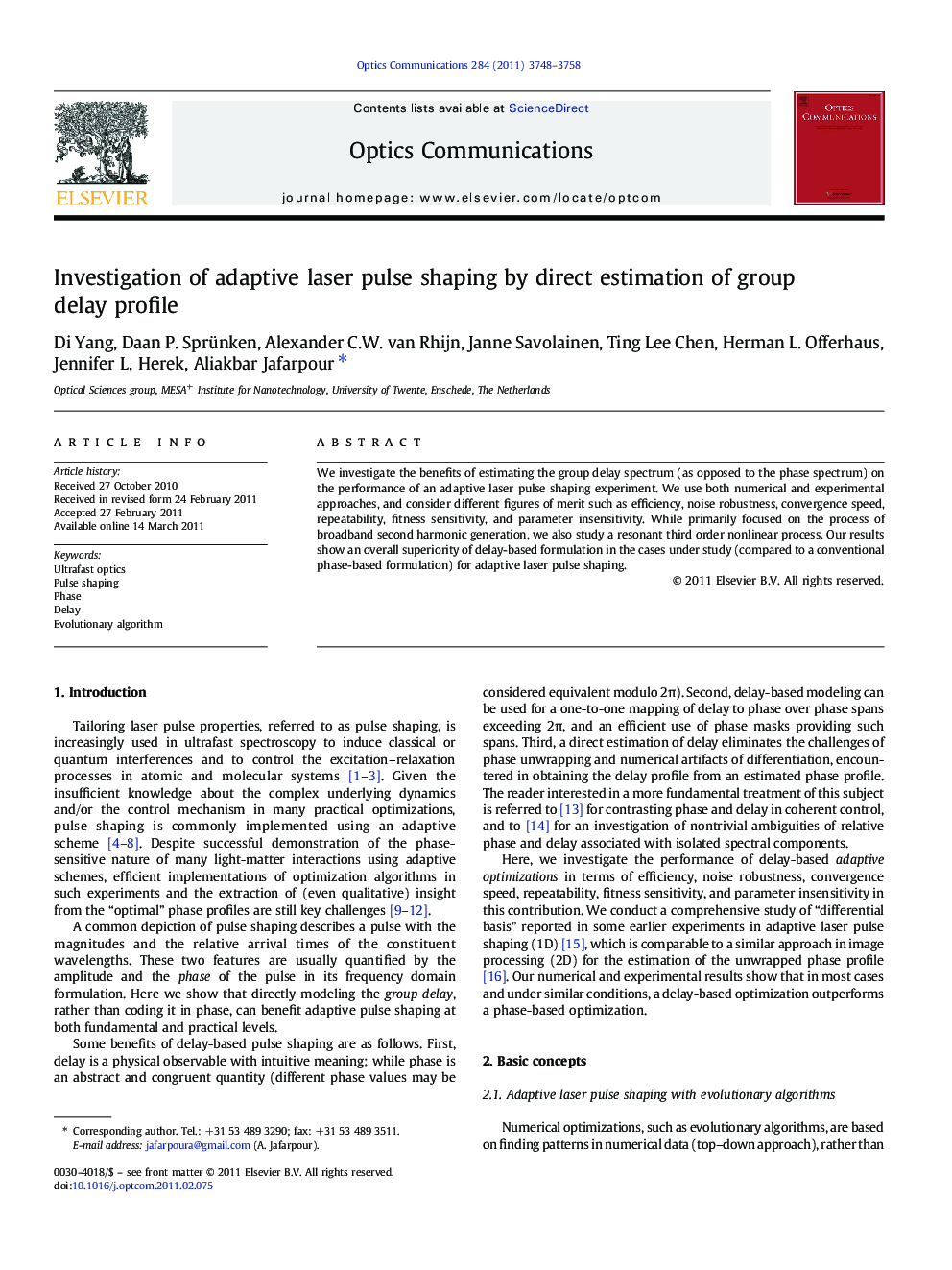| Article ID | Journal | Published Year | Pages | File Type |
|---|---|---|---|---|
| 1537329 | Optics Communications | 2011 | 11 Pages |
We investigate the benefits of estimating the group delay spectrum (as opposed to the phase spectrum) on the performance of an adaptive laser pulse shaping experiment. We use both numerical and experimental approaches, and consider different figures of merit such as efficiency, noise robustness, convergence speed, repeatability, fitness sensitivity, and parameter insensitivity. While primarily focused on the process of broadband second harmonic generation, we also study a resonant third order nonlinear process. Our results show an overall superiority of delay-based formulation in the cases under study (compared to a conventional phase-based formulation) for adaptive laser pulse shaping.
Research Highlights► Experimental/numerical demonstration of noise robustness. ► Avoiding numerical errors of differentiation and wrapped phase estimation. ► Simultaneous improvement of sensitivity and noise robustness. ► Reduced sensitivity of new optimizations to number/range of parameters. ► Efficient fast optimization with a few (< 30) parameters.
